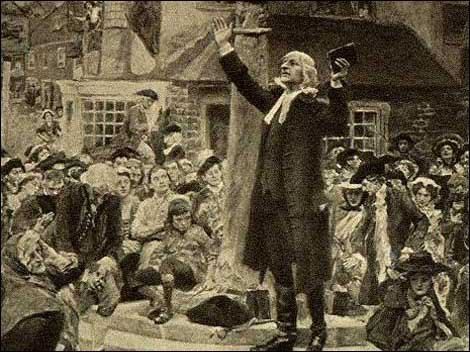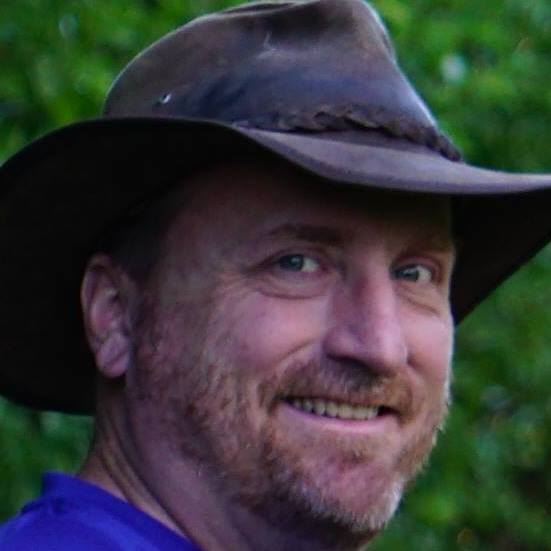Forming Faith at Camp the Methodist Way: Shoulders and Knees
(our holistic approach to faith formation)
I vividly remember my strangest experience of a camper behavior. My third year volunteering at summer camp, I was warned that a camper, whom I’ll call Bobby (mostly because I cannot recall his real name), had the occasional habit of sleepwalking. But I wasn’t prepared for what happened after lights out that first night!
After a rambunctious campfire with lots of singing, my cabin of 5th and 6th grade boys was late in settling down. Younger than I am now, I was still in good spirits despite the late hour when I finally laid down to sleep myself. It felt like only minutes had passed (though it was a couple of hours) when I was jarred awake by the sound of a boy singing:
“Head, shoulders… [pause]
head, shoulders… [pause]
eyes and ears and mouth and nose;
head, shoulders…. [pause]”
Getting out of bed, I found Bobby sitting up in his sleeping bag, his eyes closed. I watched as he raised his hands to the side of his head:
“head, shoulders…” his hands dropped limp beside him as he paused, then came up again:
“head, shoulders…” and his hands dropped limp beside him again.
 Bobby wasn’t sleepwalking, he was sleep-singing! None of us could believe it! I gently woke him up, and once he was aware of where he was he lay down, rolled over, and returned to sleep. (No doubt you can identify what was missing from Bobby’s song. I assume that because his knees and toes were buried in his sleeping bag he simply omitted them from his version.)
Bobby wasn’t sleepwalking, he was sleep-singing! None of us could believe it! I gently woke him up, and once he was aware of where he was he lay down, rolled over, and returned to sleep. (No doubt you can identify what was missing from Bobby’s song. I assume that because his knees and toes were buried in his sleeping bag he simply omitted them from his version.)
I’m sharing this story not only because I find it a humorous anecdote, but because I want to connect it to our history of faith formation. One of the incredible aspects of our Methodist heritage is that from the start it took pains to approach spiritual formation holistically. For Methodists, the faith in which we are formed is more than just the beliefs we hold.
John Wesley, founder of our Methodist movement, is often identified as a “practical” theologian. Wesley did not set out to create a well-organized system of belief (e.g. a “systematic theology”); rather, he brought his theological understanding to bear on the real lives of Methodist participants. As he did so, both the theology and actual practices of Methodism embraced an understanding that faith is greater than just what one believes. Faith is an interconnected web wherein the whole person (inclusive of our thoughts, emotions, actions, bodies, and relationships) connects with God, with the communities in which we live(1), and even with Creation at large.
 John Wesley and the early Methodists seem to have understood this deep interconnectedness and built our faith tradition around holistic spiritual growth. Wesley would not have us leave out knees and toes; whether inadvertently because they are out of sight, or intentionally because some deem them of less importance. When John and Charles Wesley and the other members of their “holy club” at Oxford began their methodical approach to spiritual formation, they focused not only on the spiritual, but also the physical. The members of the group naturally gave attention to their personal and communal acts of piety (such as prayer, worship, and even their study of Scripture), but they didn’t stop there. With John’s encouragement, they also made “acts of mercy” a focus of their spiritual formation; they made it a priority to serve and do good to others. They went so far as to do what was otherwise unthinkable in their day, and visited strangers in prison! To this day, Methodists are convinced that the path of Christian perfection, the journey toward spiritual maturity, involves not just spiritual contemplation but also real-world activity. As part of our pursuit of living out the great commandment, we care for one another in ways that nurture body, mind, and spirit.
John Wesley and the early Methodists seem to have understood this deep interconnectedness and built our faith tradition around holistic spiritual growth. Wesley would not have us leave out knees and toes; whether inadvertently because they are out of sight, or intentionally because some deem them of less importance. When John and Charles Wesley and the other members of their “holy club” at Oxford began their methodical approach to spiritual formation, they focused not only on the spiritual, but also the physical. The members of the group naturally gave attention to their personal and communal acts of piety (such as prayer, worship, and even their study of Scripture), but they didn’t stop there. With John’s encouragement, they also made “acts of mercy” a focus of their spiritual formation; they made it a priority to serve and do good to others. They went so far as to do what was otherwise unthinkable in their day, and visited strangers in prison! To this day, Methodists are convinced that the path of Christian perfection, the journey toward spiritual maturity, involves not just spiritual contemplation but also real-world activity. As part of our pursuit of living out the great commandment, we care for one another in ways that nurture body, mind, and spirit.
I find further emphasis on our approach to holistic spirituality within the lyrics of a lesser-known hymn by Charles Wesley. Entitled “At the Opening of a School in Kingswood,” and published in the 1778 edition of A Collection of Hymns for the Use of The People Called Methodists, the song encapsulates our holistic means of pursuing faith development:
Unite the pair so long disjoined,
Knowledge and vital piety:
Learning and holiness combined,
And truth and love, let all men see…
The lyrics may be viewed as a commitment on the part of the singer or as an appeal for God to take action, but in both cases the expression makes clear that a holistic faith integrates knowledge and piety. Mature faith connects what we think with what we do. Methodists have always taken education and action seriously, that is part of the reason why there are both universities and hospitals founded by and still named after our movement. Faith involves belief and behavior, body and spirit. (Indeed, John Wesley’s understanding of the holistic care of souls motivated him not only to open health clinics in the Methodist Societies, but also to write a medical text!)
 I was not only nurtured within, but am an enthusiastic fan of this holistic understanding of faith. Rev. Adam Hamilton, pastor of one of United Methodism’s largest congregations, Church of the Resurrection in Kansas, points out that this approach balances head, heart, and hands, influencing preachers like me to educate the mind, influence the heart, and motivate the will (2). What we think or believe, how we feel, and what we do are all intimately wound together, and healthy approaches to faith formation take this balance seriously – “head, shoulders, knees and toes, knees and toes”!
I was not only nurtured within, but am an enthusiastic fan of this holistic understanding of faith. Rev. Adam Hamilton, pastor of one of United Methodism’s largest congregations, Church of the Resurrection in Kansas, points out that this approach balances head, heart, and hands, influencing preachers like me to educate the mind, influence the heart, and motivate the will (2). What we think or believe, how we feel, and what we do are all intimately wound together, and healthy approaches to faith formation take this balance seriously – “head, shoulders, knees and toes, knees and toes”!
Long before the behavioral health movement began teaching it, John Wesley was leading Methodists in discovering that behavior/action can both come first and actually influence belief, thought, and mood. (One might cite John’s experience with Moravian bishop Peter Boehler as the seed of this. Spiritually distraught after his failed mission in Georgia, Wesley was encouraged not to quit preaching; rather, Boehler encouraged him by saying he should “preach faith until you have it; then, because you have it, you will preach faith.”) Whatever the origin, the society and class meetings of Methodism emphasized accountability for participants’ behavior as an important step in their faith formation. When it comes to our Methodist history of faith formation, ortho-praxy (right practice) has always been holistically interconnected with ortho-doxy (right belief).

Other theological principles of our Methodist heritage integrate this holistic approach, too. We often put an emphasis on John Wesley’s articulation of grace as the work of the Holy Spirit in our lives (name the three with me, now: prevenient(3), justifying, sanctifying!), but Wesley's theology was not just about the grace of God given to us. Wesley's theology revolved around both grace and holiness. Indeed, many of the modern denominational offspring of the original Methodist movement are those churches accounting for the "holiness movement" of the 19th century.
I’ve been coming to better understand the ongoing balance of grace and holiness in my life in this way: I receive with joy and thanksgiving the grace of God and then try to extend that grace toward others, while at the same time the holiness of God inspires my personal pursuit of holiness. (Although I can’t directly pinpoint this articulation in Wesley’s work, this is how I have internalized his teachings: I expect much of myself, and seek to extend much grace to others.) As my faith grows, I grow both in what I receive and in what I give.
Once again I can observe and celebrate that this holistic approach to faith formation is an integral part of many ministries of The United Methodist Church, our camp and retreat ministries included. Consider how at camp we often…
-
…debrief, bringing theological and psychological insight to bear on camp activities. Before, during, or after campers face their fears and climb the rock wall or step off the zip-line, we lead them in reflection on the action and its relationship to other fears in their lives. So many of our camp and retreat center staff expertly help to connect a camper’s experiences during the day to larger themes of self-esteem, personal development, and faith formation. It’s what you do!
-
…care for the camper’s physical safety and comfort as an integral part of their experience of spiritual formation. Come on, how many of us haven’t heard that the food was one of the best experiences campers had during their week? Many of our staff can cite Maslow’s hierarchy of needs in relation to the work we aim to do with faith formation. Even if we can’t, our staff seem to intuitively know that we must meet basic physical and psychological needs – helping campers feel safe, cared for, and that they belong – before we can help nurture their experience of deeper formation of faith and self.
-
…encourage new behaviors in the expectation they will inform belief. I’m among those who look at the zip tower and assert that there is no way I can do that; but, with encouragement, I have stepped off the edge. (Twice, for the record. And that really is enough.) Some leaders encourage their campers to keep a gratitude journal (writing down things they are grateful for) recognizing that writing what we are thankful for can actually influence a sense of gratitude. Homesick campers can be encouraged to think of what they want to have happen during their week at camp, and in contemplating their hopes they help vision them into reality.
These are just some of the ways that our camp and retreat ministries realize our Methodist approach to faith formation. Like the intricately connected joints in our shoulders and knees – where ligaments, muscles, nerves, and bones work together with our conscious self – we strive for interconnectedness in our efforts at faith formation. We balance head, heart, and hands; we aim to unite “knowledge and vital piety;” we integrate belief and behavior together as we seek to inspire formation in faith. We look to the whole of a camp’s experience as part of God’s ongoing work in and with us, to help participants pursue holistic faith formation.
Happy camping, Methodists!
Footnotes:
- When Wesley writes, “I know of no holiness but social holiness,” it is his assertion that our faith, and any formation we experience in that faith, is deeply entwined with others. John Wesley, Hymns and Sacred Poems (1739), Preface, page viii: “‘Holy Solitaries is a phrase no more consistent with the gospel than Holy Adulterers. The gospel of Christ knows of no religion, but social; no holiness but social holiness.”
- This three-fold saying is not original to me. I do not have a notation of the original source, but many others have used this handy alliterative phrase.
- Wisely advised to utilize this oft-used modern term for the first movement of grace in Wesley’s theological articulation, the author still wishes to point out that Wesley’s “preventing” (by which he means the movement of grace before, e.g. pre-, the event of justification) would be in better keeping with the verb form of the other two.
About the author:
 This is the second in a series of three reflections on the influence of our Wesleyan heritage upon the spiritual formation we seek to nurture at camp. Author Ron Bartlow insists he has some level of expertise to share these ideas with our UMCRM community. This entry, handwritten on a saloon napkin, was delivered to our offices wrapped around the leg of a sorely aggrieved jackalope.
This is the second in a series of three reflections on the influence of our Wesleyan heritage upon the spiritual formation we seek to nurture at camp. Author Ron Bartlow insists he has some level of expertise to share these ideas with our UMCRM community. This entry, handwritten on a saloon napkin, was delivered to our offices wrapped around the leg of a sorely aggrieved jackalope.